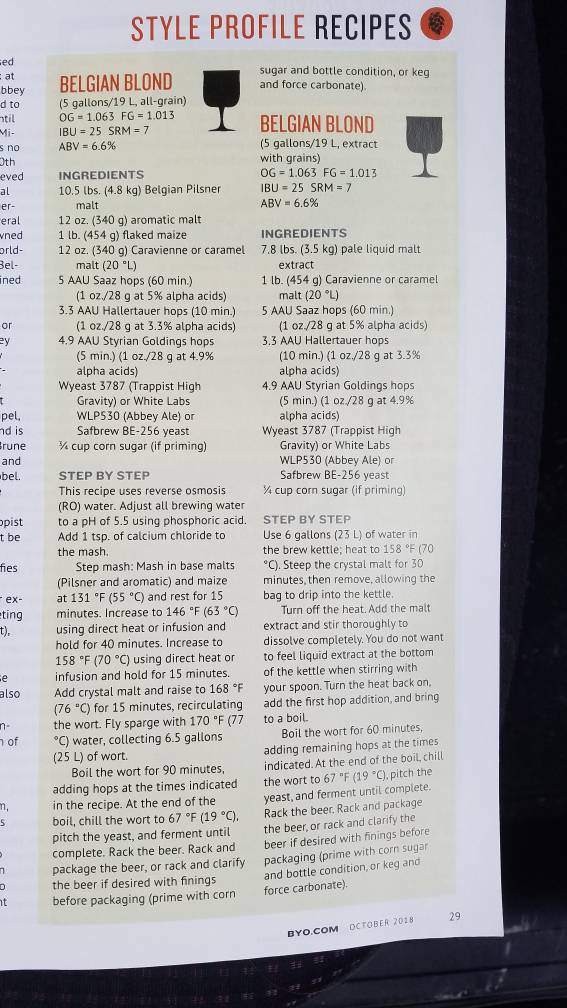EDIT: using all grain recipie in picture
Guys if anyone thinks this this is over my head and shouldn't dabble with it than feel free to tell me. I've got about 10 batches combined with beer, mead and cider under my belt and have been seeing some really good results lately. I found this recipe (see picture I took from magazine) in my Brew Your Own magazine for a Belgian blond ale. I thought this would be a good basic recipe and a good alternative to a pilsner beer for I lack the equipment for lagering. The recipe calls for RO water but I dont know much bout it. If I can find RO water is there anything I need to do with it before brewing or during brewing? Can I use regular filtered water from my tap if I dont have RO water? I've heard of using distilled water with some additions but I dont know if that something I want to mess with.
Any tips advice or constructive criticism are welcome.
Thanks
Greg

Guys if anyone thinks this this is over my head and shouldn't dabble with it than feel free to tell me. I've got about 10 batches combined with beer, mead and cider under my belt and have been seeing some really good results lately. I found this recipe (see picture I took from magazine) in my Brew Your Own magazine for a Belgian blond ale. I thought this would be a good basic recipe and a good alternative to a pilsner beer for I lack the equipment for lagering. The recipe calls for RO water but I dont know much bout it. If I can find RO water is there anything I need to do with it before brewing or during brewing? Can I use regular filtered water from my tap if I dont have RO water? I've heard of using distilled water with some additions but I dont know if that something I want to mess with.
Any tips advice or constructive criticism are welcome.
Thanks
Greg


